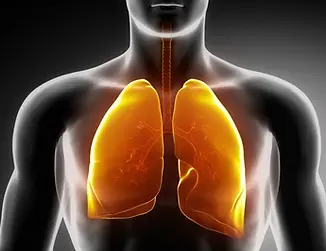Your Heart Has Its Own ‘Brain’
Did you know your heart isn’t just a pump; it has its mini-brain? Scientists discovered around 40,000 neurons in the heart that can think, feel, and send signals to the brain independently. This means your heart can sometimes “sense” danger or calmness before your mind processes it. Ever had a gut-wrenching feeling or sudden anxiety with no obvious reason? That’s likely your heart-brain connection at work. It’s no wonder people say “follow your heart”; it’s smarter than you think.
The Power of a Yawn
Yawning isn’t just a sign of boredom or sleepiness; it’s your body’s built-in cooling system for your brain. When you yawn, the rush of cool air and stretching of facial muscles helps regulate brain temperature, making you more alert. Some studies suggest that contagious yawning is tied to empathy and social bonding, which is why you yawn when someone nearby does. Interestingly, even unborn babies yawn in the womb, hinting that this reflex starts early in life. So next time you yawn during a meeting, just tell them you’re “brain-cooling.”
Skin Talks
Your skin is like a health billboard; it quietly reveals what’s happening inside your body. Stress can trigger breakouts, vitamin deficiencies can cause dryness or dullness, and liver problems can change your skin tone. That’s why doctors often look at skin color and texture during checkups. The skin is also your largest organ, constantly protecting you from bacteria and regulating body temperature. If you pay attention, it can give you early warnings about your overall health before tests do.
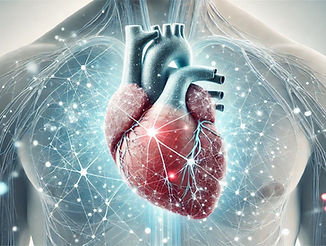


Gut Feelings Are Real
When you say you have a gut feeling, it’s not just a figure of speech; it’s neuroscience. Your gut has its own nervous system called the “enteric nervous system,” which can function independently of the brain. It produces about 90% of your serotonin, the hormone that regulates mood, making your stomach a key player in mental health. That’s why stress, anxiety, or excitement can literally cause butterflies or stomach aches. A healthy gut often means a happier, calmer mind.
Your Bones Are Stronger Than Steel
It may not feel like it, but gram for gram, human bone is about five times stronger than steel. This incredible strength allows your body to handle intense pressure and weight while staying lightweight for mobility. A single cubic inch of bone can bear the weight of five pickup trucks. Over time, however, poor nutrition or lack of exercise can weaken bones, leading to fractures and osteoporosis. The good news? Your bones constantly rebuild themselves, meaning strength can be maintained or regained with proper care.
Morning People vs. Night Owls
Whether you’re an early bird or a night owl, your body clock is written in your genes. Morning people tend to have better metabolic health and stronger immune responses, while night owls are often more creative and mentally sharp in late hours. However, research shows night owls may have a slightly higher risk of developing chronic conditions if their schedules clash with daylight hours. Aligning your routine with your natural rhythm can improve energy, mood, and even lifespan. So, it’s less about changing yourself and more about syncing with your biology.
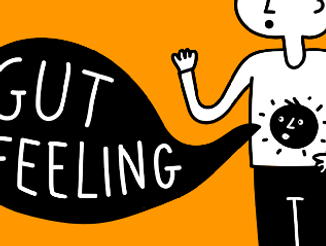
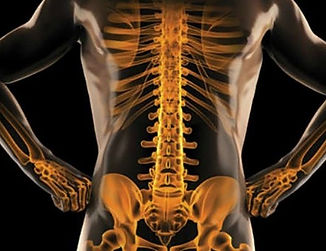
.webp)
The 10-Second Stress Reset
You don’t need an hour-long meditation to beat stress; science shows you can reset in 10 seconds. Take a deep inhale for four seconds, hold it briefly, and then exhale slowly for six seconds while dropping your shoulders. This activates your parasympathetic nervous system, instantly lowering cortisol levels. Doing this a few times a day can reduce anxiety, improve focus, and even lower blood pressure. It’s like a mini vacation for your nervous system that you can do anywhere: desk, car, or even a crowded elevator.
Brain Tricks Your Taste Buds
Your brain is a master illusionist; it can change how food tastes based on simple cues like color and smell. Research shows that people perceive food served on a red plate as sweeter and on a blue plate as less salty. Even background music can influence how bitter or spicy something tastes. This trick has been used by restaurants to enhance flavors without adding extra sugar or salt. So, next time you want dessert to taste sweeter, maybe just change your dish color.
Why Goosebumps Exist
Ever wondered why your skin suddenly prickles with goosebumps when you’re cold or scared? This is a leftover survival mechanism from our furry ancestors. When animals sense danger or chill, their body hair stands on end, making them look bigger or trapping heat. Even though humans have less body hair now, the reflex still triggers. Interestingly, goosebumps can also appear during emotional moments, like listening to powerful music, as your nervous system reacts to strong feelings.
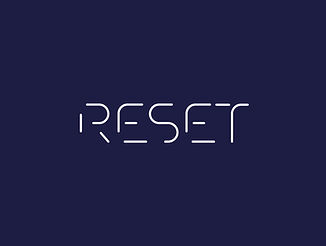
.jpeg)
.webp)
Laughing Burns Calories
Laughter truly is the best medicine; not just for your mood but also for your waistline. Studies show that a good belly laugh for 10–15 minutes can burn up to 40 calories. It’s not a full gym session, but over time, it adds up. Laughing also boosts oxygen intake, strengthens your immune system, and releases endorphins, the body’s natural feel-good chemicals. So, sharing memes or watching a comedy show is technically a health hack.
Your Body Glows in the Dark
Humans emit a faint light naturally, but it’s a billion times too weak for our eyes to see. Researchers using special cameras found that this bioluminescence peaks in the afternoon and dips at night. The glow comes from biochemical reactions within cells as they metabolize energy. While it doesn’t light up a room, it’s proof that our bodies are constantly buzzing with invisible energy. You’re literally glowing 24/7, just in a way only science can see.
Heartbeats Sync When You Hug
A warm, long hug does more than comfort; it actually synchronizes your heartbeat and breathing with the other person’s. This phenomenon happens when you hug for at least 20 seconds, triggering the release of oxytocin, also called the “love hormone.” This physical bond can lower stress, boost mood, and even strengthen immunity. In romantic partners or close friends, synchronized heart rhythms have been linked to stronger emotional connections. Hugs aren’t just cute, they’re biological therapy.
.webp)
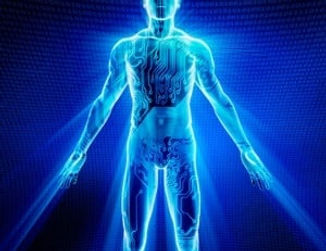

Crying Changes Your Chemistry
Ever felt lighter after a good cry? Emotional tears contain stress hormones and toxins that your body expels when you cry. This helps reduce emotional overload and restores balance in your nervous system. Crying also releases endorphins, providing a natural calming effect. That’s why after sobbing, many people report feeling physically and emotionally relieved. It’s your body’s built-in emotional detox system at work.
Your Lungs Aren’t the Same Size
Most people assume both lungs are identical, but your right lung is actually larger than your left. This is because your heart takes up space on the left side of your chest. The right lung has three lobes, while the left has only two. This asymmetry allows your organs to fit perfectly while maintaining breathing efficiency. Despite the size difference, both lungs work together seamlessly to keep you alive and well.
Dreams Can Help Solve Problems
Dreaming isn’t just random brain activity; it’s your mind’s way of processing information and solving problems. Studies show that during REM sleep, your brain makes unique connections you might not think of while awake. Many inventors, artists, and scientists have credited dreams for their breakthroughs, including famous songs and inventions. Keeping a dream journal can help you capture these creative sparks. Sleeping on a problem might just be the smartest decision you make.
.webp)
